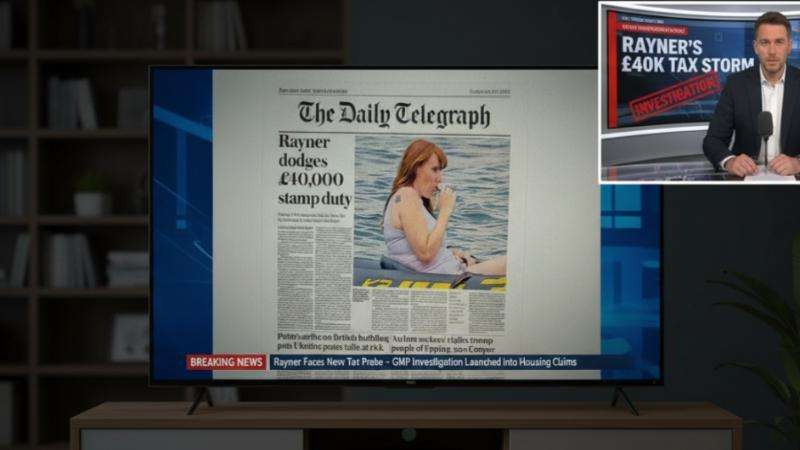The Labour Deputy Leader, Angela Rayner, is facing intense pressure and a fresh police investigation into her historic living arrangements and the sale of her former council house. The new inquiry by Greater Manchester Police (GMP) comes after Tory MP James Daly formally complained about potential offences, reigniting a controversy that has dogged Rayner for weeks.
At the heart of the allegations, as reported by The Daily Telegraph, is whether Ms. Rayner accurately declared her main residence for tax purposes when she sold her former council house in Stockport in 2007. The property, which was bought under the Right to Buy scheme, became the subject of scrutiny after reports suggested she may have avoided paying capital gains tax on the sale and potentially misrepresented her primary address for electoral purposes.
The newspaper image clearly highlights "Rayner dodges £40,000 stamp duty," referring to allegations that her living situation meant she may have avoided significant tax liabilities. While the main headline refers to stamp duty, the core of the current police probe and political debate centres on capital gains tax on the 2007 sale and potential breaches of electoral law related to her registered address between 2007 and 2010.
Ms. Rayner has consistently denied any wrongdoing, stating she has received professional tax advice and is confident she has followed all rules. She has pledged to resign if found to have committed a criminal offence. However, the decision by GMP to investigate, having previously stated they would not, marks a significant escalation. The police initially declined to investigate after "reviewing the information provided," but a subsequent re-evaluation of the legal advice and a complaint from Mr. Daly prompted the new probe.
Labour leader Sir Keir Starmer has publicly stood by his deputy, reiterating his full confidence in her. However, the ongoing saga is an unwelcome distraction for the Labour Party as it gears up for a general election, with the Conservatives keen to exploit any perceived misstep by their rivals. The timing of the investigation, just months before a likely election, ensures that Ms. Rayner's personal financial affairs will remain a prominent and contentious issue in the political landscape.
This developing story continues to raise questions about the standards of conduct for senior politicians and the scrutiny applied to their financial dealings. The outcome of the GMP investigation will undoubtedly have significant implications for Angela Rayner's political future and potentially for the wider Labour Party's electoral prospects.







.svg)
